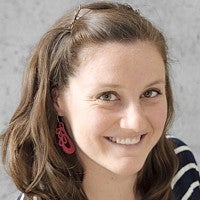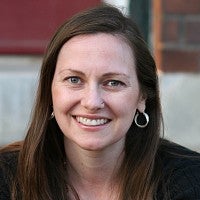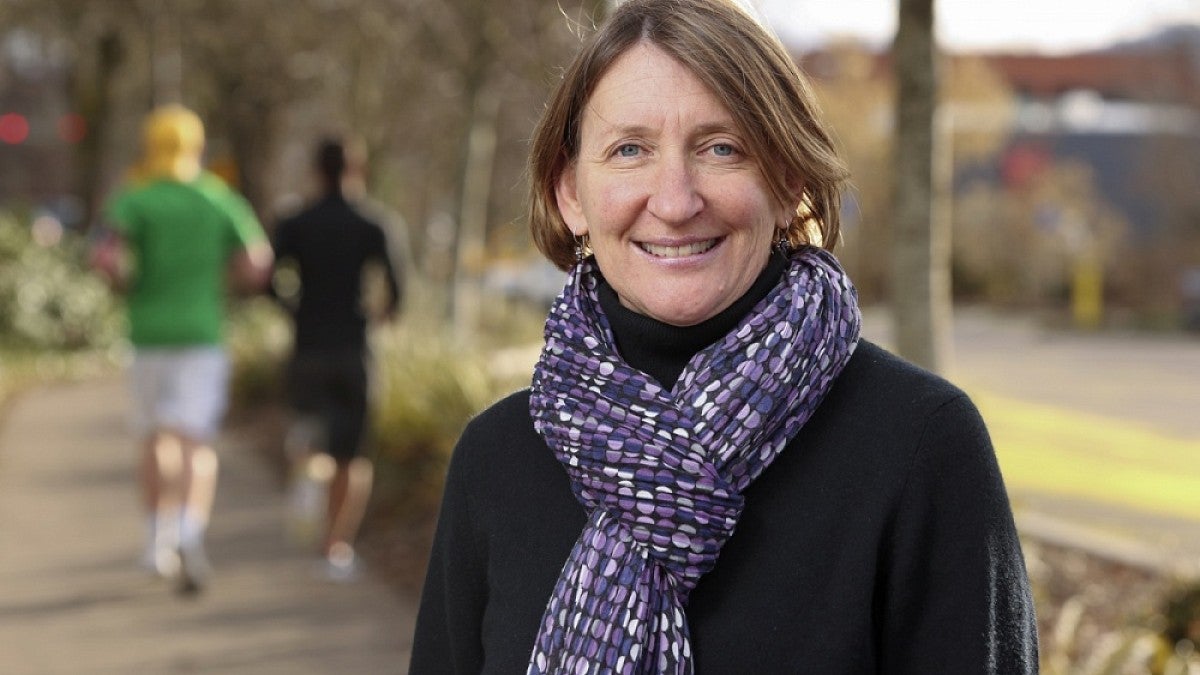Four early career scholars whose work focuses on the science of obesity prevention will join the UO's Health Promotion and Obesity Prevention Initiative in the fall. They were hired as part of the Clusters of Excellence Faculty Hiring Initiative announced in 2014.
“We've recruited four amazing and talented scholars whose research interests are related. Together they will form a true cluster,” said Beth Stormshak, coordinator of the cluster and director of the UO's Prevention Science Institute in which the cluster is located. “All of their research is synergistic with what we’re doing here in the College of Education and campuswide.”
The cluster received a boost in November 2014 when UO alumna Connie Ballmer, a 1984 graduate, and her husband, Steve, gave $20 million in philanthropic support as part of their $50 million gift to the UO’s $2 billion fundraising campaign.
The Health Promotion and Obesity Prevention Initiative, Stormshak said, will address obesity rates in the United States, where 35 percent of adults and one-third of all children are considered to be overweight or obese. The cluster will integrate new expertise with existing research in related disciplines and build on longstanding UO strengths in prevention science and biological systems.




The new hires (left to right, above) are: Nicole Giuliani, a research associate in the UO's Department of Psychology where she works with professors Elliot Berkman, Phil Fisher and Jennifer Pfeifer; Elizabeth L. Budd, who is completing a doctoral degree in public health at Washington University in St. Louis; Tasia M. Smith, who is completing doctoral work in counseling psychology at the University of Florida; and Nichole R. Kelly, currently a postdoctoral researcher in a joint position at the Uniformed Services University of Health Sciences and the National Institutes of Health.
Giuliani studies basic brain processes and mechanisms that link to emotional and self-regulatory aspects of food consumption to help develop interventions that improve diet and health behaviors.
“I am thrilled to be joining the College of Education as part of the Health Promotion and Obesity Prevention cluster," said Giuliani, who has a doctorate in psychology from Stanford University. "I chose to stay at University of Oregon for many reasons, including the UO's community of supportive and collaborative faculty, the fantastic research being done here in both basic and applied science, and Eugene itself. I cannot think of a better place to continue my research on the emotional and self-regulatory aspects of food consumption, and interventions aimed at improving diet and health.”
Budd, whose undergraduate work at Santa Clara University combined sociology and Spanish studies, has lived in St. Louis for a decade, but she grew up in Oregon and is happy to be returning to the state.
“When I found the position announcement, I thought, this is perfect,” Budd said. “I have a transdisciplinary background and a research focus on physical activity and health promotion, especially among youth and adolescents. I am joining a team of really smart, down-to-earth people who are doing exciting work that is complementary to mine. I couldn't ask for anything better.”
Smith has focused her studies on the connections of motivation and community-based partnerships with the engagement of culturally diverse families in improving health behaviors. She has two papers soon to publish on barriers to healthy eating.
“I chose to join the UO because of the strong emphasis on prevention-based scholarship in the College of Education and the opportunities available to build strong collaborative relationships with my fellow colleagues, students and community stakeholders,” Smith said. “These core strengths of the college, among many others, are an excellent fit for my research interests, which focus on the prevention and reduction of health disparities among underserved populations.”
Kelly holds a doctorate in counseling psychology from Virginia Commonwealth University. Her current research, funded by an NIH fellowship, involves building brain-based models for studying energy intake and excess weight gain in young people.
"After having met with several faculty and students at the University of Oregon, it quickly became evident that this institute is an ideal place to conduct a program of research that will have a meaningful influence on the lives of others," Kelly said. "The UO is home to countless bright, creative and experienced faculty conducting rigorous research spanning multiple disciplines. It is my belief that a multidisciplinary approach is vital to enhancing our understanding of both the etiology and effective prevention of a complex physical, psychological and sociocultural issue like obesity."
The new hires for the cluster are among the first of a focused effort at the UO to hire more research-active, tenure-track faculty members. President Michael Schill has set a goal to hire an additional 80 to 100 faculty members over the next five years to boost the university’s research activity and invest in the institution’s academic enterprise.
Additional hires in biology and human physiology are planned for the cluster later in the year, Stormshak said.


